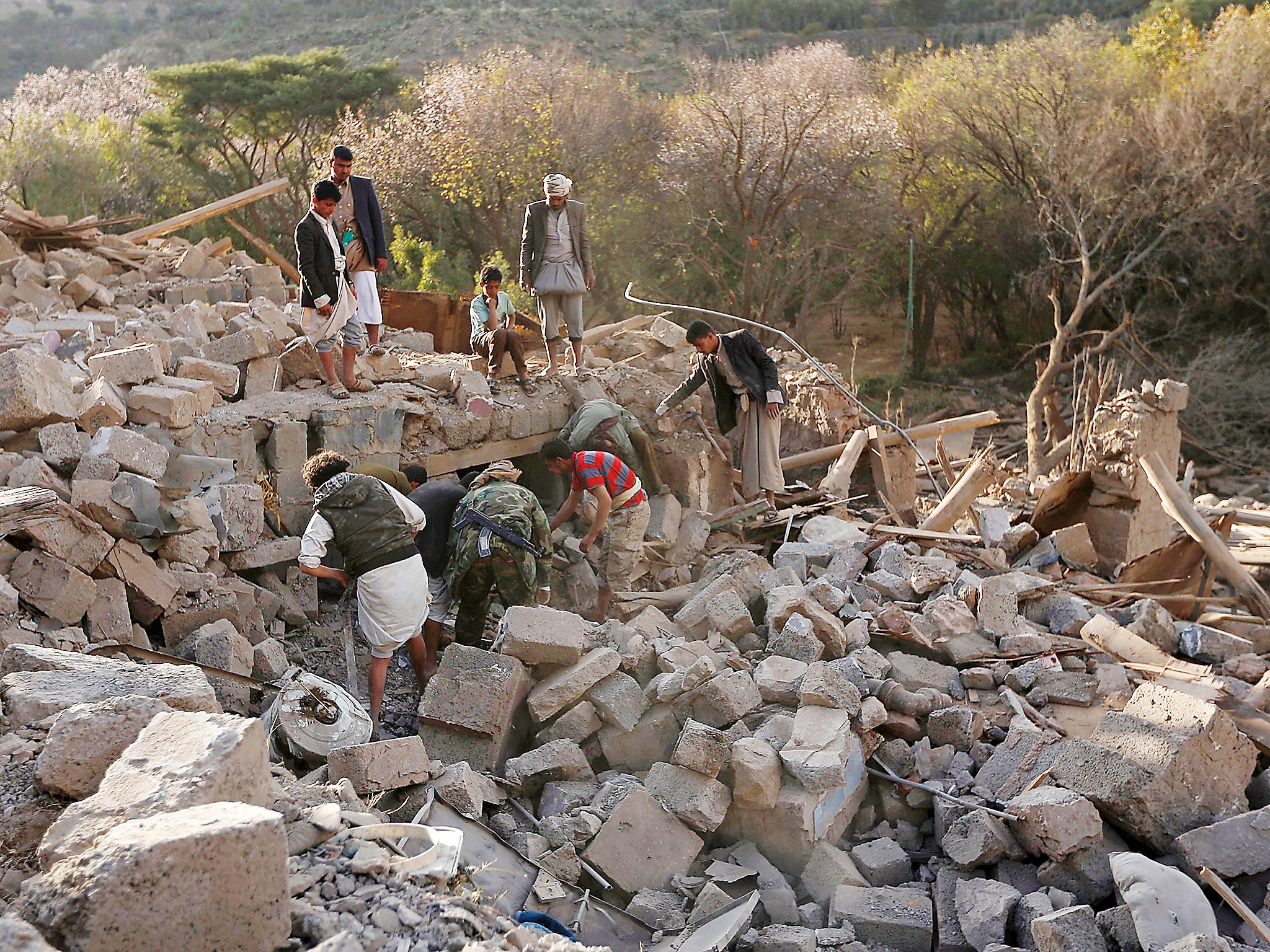Now the High Court will decide if Brexit Britain is complicit in the devastating conflict between Saudi Arabia and Yemen
According to campaigners, since the start of the war Britain has approved export licences for arms worth £3.1bn to the Saudi regime


In the south west corner of the Arabian Peninsula, Britain is complicit in one of the worst and least noticed crimes against humanity in the 21st century. Thanks to Saudi air strikes starting two years ago, a localised civil war in Yemen was transformed into a devastating conflict which has brought 12 million people to the edge of famine. Some 19 million Yemenis out of a total population of 25 million lack fresh water to drink and 4 million do not have enough food to eat.
In bringing about this man-made calamity, the British Government has played a small ignoble role as a supplier of weapons to Saudi Arabia whose air raids are primarily responsible for the destruction.
The continuation of arms sales that are the subject of a legal challenge before the High Court in London this week on the grounds that the weapons will be used in Yemen in violation of international humanitarian law. Critics of the US and Britain say they play an essential role in supporting the Saudi-led air campaign that has destroyed much of the Yemen’s infrastructure. The poorest Arab country, it used to import 90 per cent of its food – but this has become far more difficult since air strikes destroyed cranes in the port of Hudayda on the Red Sea coast in 2015. The loss of the always inadequate sewage and garbage disposal facilities has led to the spread of cholera and dengue fever. In addition, at least 10,000 people have been killed in the fighting and 3.27 million people forced to flee their homes.
The suffering is likely to grow worse because the prolonged Saudi attempt to defeat the Houthi rebels, who are allied to former President Ali Abdullah Saleh, has so far only produces a military stalemate. The rebels still hold the capital Sana’a and much of the north of the country. The Saudi ambition to split the alliance between the Houthi and Saleh has so far failed.
British support for the Saudi campaign has provoked little public interest, but the Government is now facing a landmark case before the High Court in London as the Campaign Against the Arms Trade (CAAT) seeks an order to stop the sale of British-made bombs, fighter aircraft and other munitions to Saudi Arabia. CAAT says that since the start of the conflict, Britain has approved export licences for arms worth £3.1bn to Saudi Arabia.
The British Government maintains that it does not licence weapons when there is a clear risk of humanitarian law being breached. But there is evidence that Saudi pilots either do not know or do not care what they are bombing. US officials are quoted by The Washington Post as saying that “errors of capability or competence, not of malice” explain repeated strikes against civilian targets but this lack of intent means that no international laws are being broken.
American and British support for Saudi Arabia as their main regional ally has been automatic in the past, but its policies have become more aggressive and nationalistic since King Salman became Saudi monarch in 2015.
Though the US and UK have sought to present the Houthis as an Iranian proxy, there is little sign that they get much help from Tehran, though Saudi intervention has served to deepen – and make more sectarian – a complicated civil war inside Yemen.
As Britain prepares to leave the European Union, it has a strong incentive to strengthen existing alliances with trading partners in the Gulf and elsewhere. Theresa May has already visited Bahrain and Turkey, both notoriously prohibiting dissent and imprisoning journalists and opposition leaders.
President Obama’s administration had begun to distance itself from supporting Saudi Arabia and the Sunni states of the Gulf, but the Trump administration is showing himself itself as much more sympathetic to Saudi Arabia and hostile to Iran with officials saying that the US will give full support to the Saudi-led air offensive.


Join our commenting forum
Join thought-provoking conversations, follow other Independent readers and see their replies